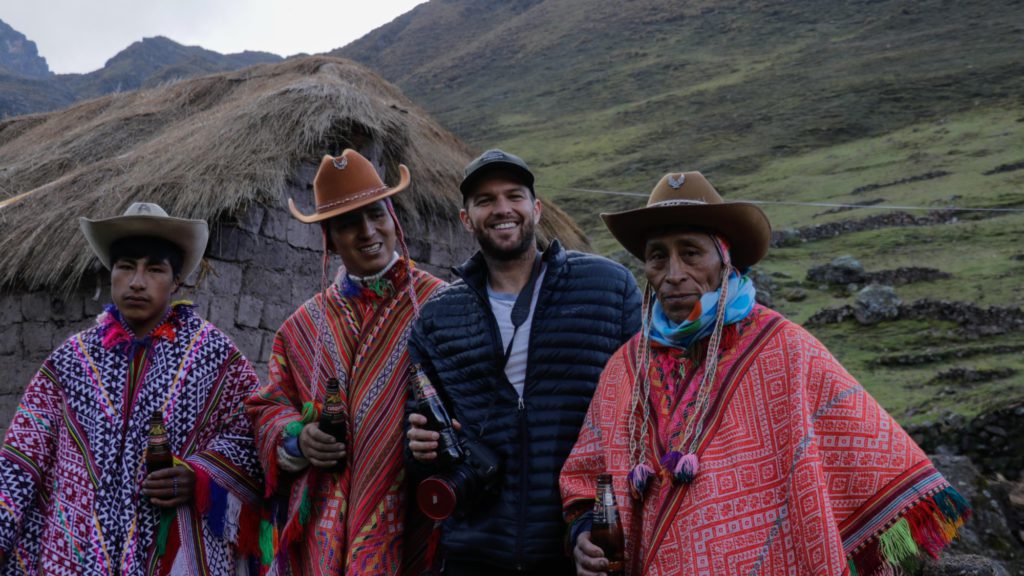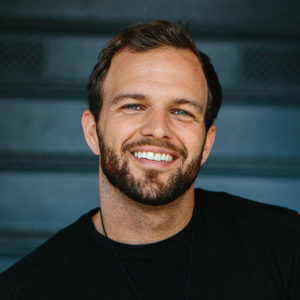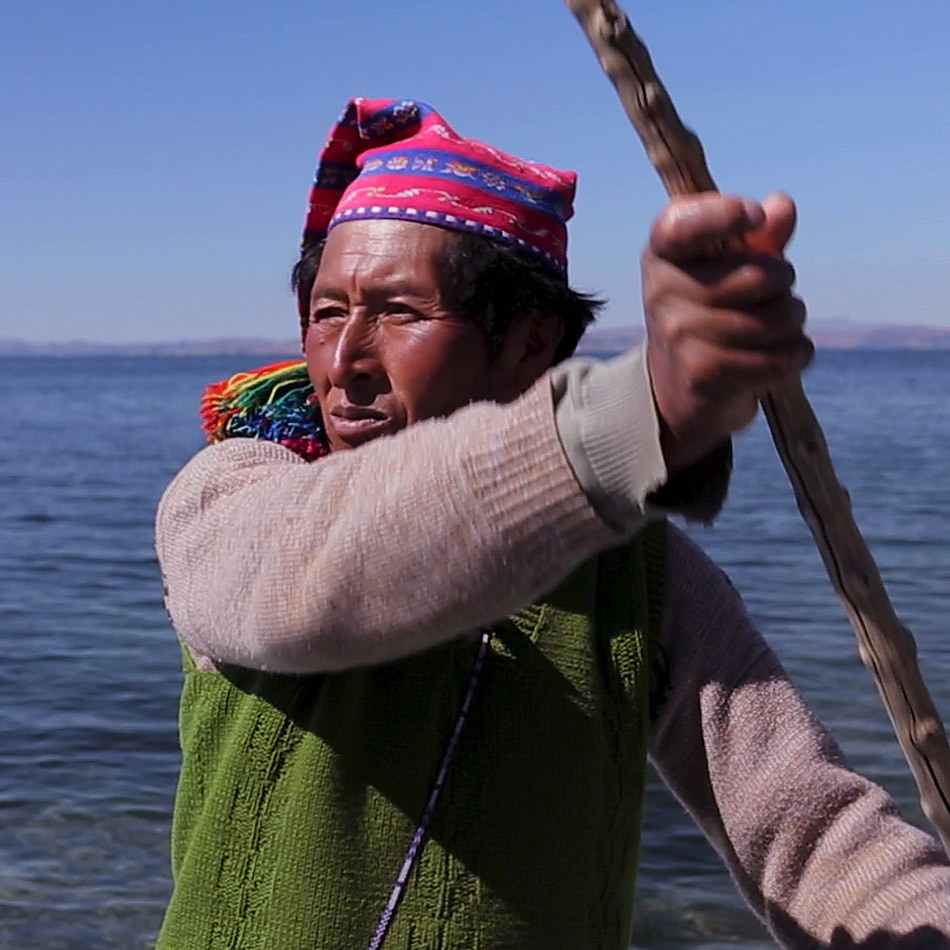Career breakthrough to creative burnout
In 2016, I quit my job in corporate America to pursue filmmaking full time. By 2017, my documentaries started getting traction at film festivals. Then in 2018, my team and I were able to raise a substantial amount of money to fund and create a career-defining documentary.
In association with The Andean Alliance for Sustainable Development, a respected non-profit organization in the Andes Mountains of Peru, we had the ingredients for a stunning film. Incredible access, trust within the communities we were documenting, and a once in a lifetime story.
Our vision for Opening the Earth: The Potato King was to tell the story of Julio Hancco, an aging guardian of biodiversity living 14,600 ft above sea level in the Andes Mountains. His humble life is contrasted by his rise to international fame and the global significance of his work. The modern world may depend on him in the event of an emergency. Julio Hancco represents a people, a culture, and a way of life that is being lost to modernization.
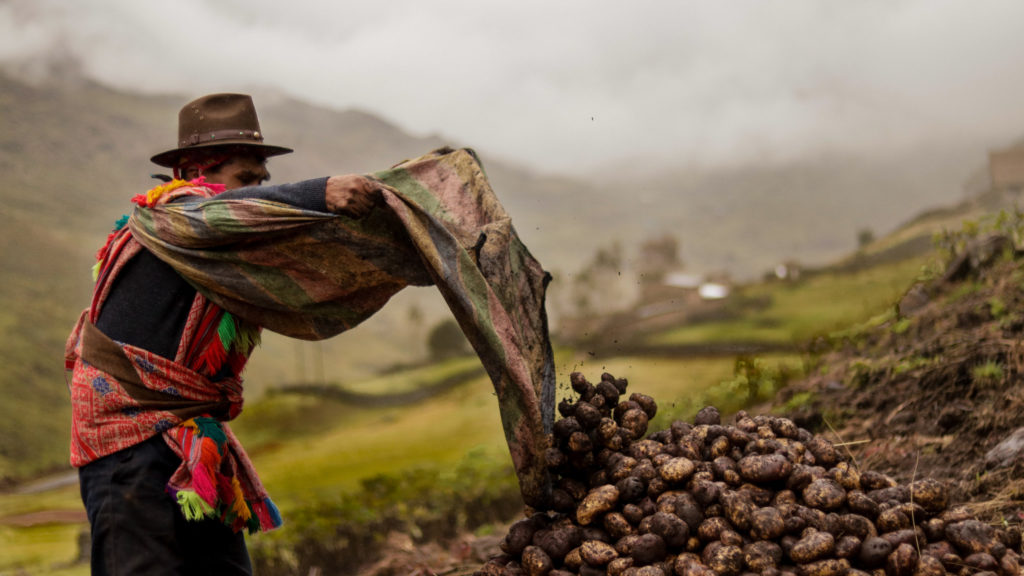
It was to be the best work of our careers, the film that would put us on the map, for good. The film would be beautiful, moving, impactful. We envisioned it would change the way people thought about indigenous communities and the world we live in. We had the funding to make it happen, and the opportunity to make it technically impressive. It was a dream come true.
Fast forward 18 months, the film was near complete. It was just up to me as the editor to fine-tune the documentary so we could deliver it to film festivals around the world. There was just one issue. As much as I tried, I wasn’t excited anymore. After the past 18 months of dedication to the project, I was burnt out. It had consumed all of my creativity, and I felt like I had nothing left in the tank. But the film festival season was quickly approaching, and I had to remind myself that this is exactly where I wanted to be when I quit my traditional life years ago.
An editing room epiphany
The next two months I slowly and begrudgingly polished the documentary. It was a grind. Confirming subtitles with Spanish and Quechua translators, cleaning up the audio, color correction, pacing, etc. Editors know what I’m talking about. The stuff that no one talks about, the stuff that isn’t glamorous. Waking up and diving into a massive and complicated project file day after day, I started to doubt myself. I hadn’t had fun making this documentary in months.
Worst of all, I couldn’t remember the last time I woke up and felt grateful to be living my dream. The monotony of the final phase of edits was sucking the creativity out of me. I felt like I was back in the cubicle farm again, slogging away. Was this what I wanted for myself? Did I choose the wrong profession? Was I just caught too deep in the weeds? Or had I actually lost something along the way?
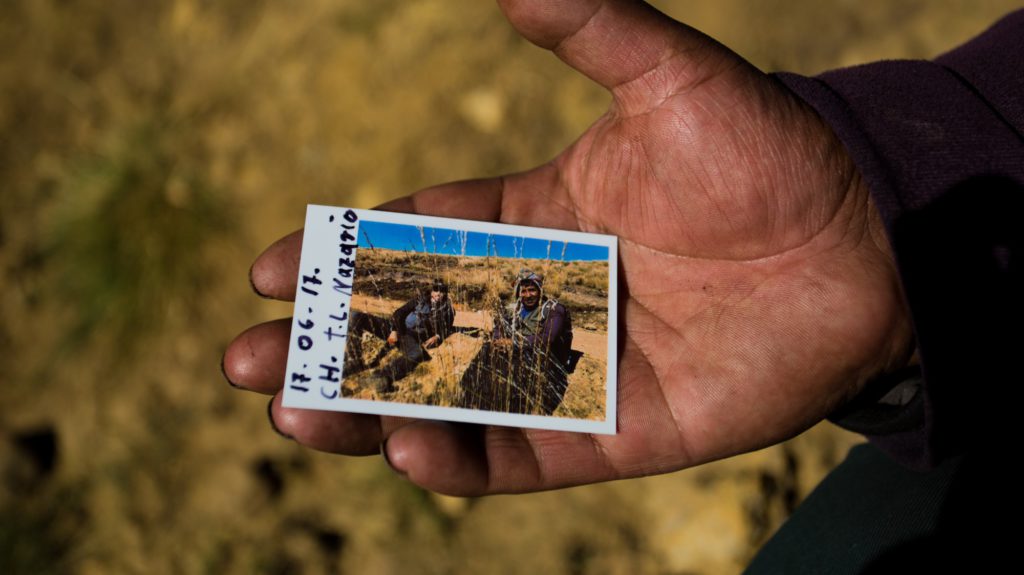
I felt overwhelmed. Through all the meticulous technical work of the last few months, I hadn’t had a chance to be a part of the process that I most enjoyed: experiencing original stories from behind the camera. I needed to get back to my roots, to why I started filmmaking in the first place. I needed some space, maybe a solo trip just might do the trick.
With no one to distract me, I could confront the issue that was growing inside me. I set no expectations other than to get my creative muscles flexing again and to enjoy the process. I left all the equipment my team and I purchased for our feature documentary in their boxes. With one camera, one microphone, and a drone, I set off to Lake Titicaca on the border of Peru and Bolivia.
Welcome to Taquile Island
3 hours into the middle of Lake Titicaca lies Taquile Island, a tiny spit of land populated by just 2,000 inhabitants. Primarily farmers and fishermen, these people have lived the same way for thousands of years. They now have electricity and receive supplies from the mainland (water bottles, pots and pans, clothes, Snickers), but their lifestyle hasn’t changed much with the times.
I stayed with a man named Alipio Wata Cruz, who was recommended to me by my brother and others based in Peru. The few tourists that visit Taquile Island stay for half a day, overnight at most. I stayed for much longer, convincing Alipio and his family to show me their normal routine around the island. There isn’t much to do, so I had plenty of time to film, explore Taquile, and ask questions. But that was the point.
On one hand, I was there to enjoy myself, but I was mainly there to work. I was hoping to find a story worth telling, and as it usually goes, the story worth telling found me. As I was learning more and more about daily life around the island, a character started to present itself. It was a fascinating character, with charm and depth, inspiration and even a bit of sadness. It wasn’t the family I stayed with, or the shopkeepers around town, the character was the island.
Living by three simple Incan laws
Taquile Island is a relic of past times. In many ways, it is a relic of better times. The island’s politics, cultural norms, and moral compass are all governed by three simple laws inherited from the Incas. The laws of Amazua, Amacayu, Amayulla:,
- Work the land
- Don’t lie
- Don’t be lazy
These three mandates set the precedent in how this tiny culture lives. Once you see it in action, you cannot unsee it. The three laws are in every interaction you have, in every person you meet.
They live with determination, with compassion, with humility. There are no roads, there are no cars. Don’t worry about updating your instagram here, you won’t find service for another few hundred miles. There are no police, because there is no crime. Divorce doesn’t exist, you stay with one person for your entire life. Once you make a decision on your partner, you must honor that choice.
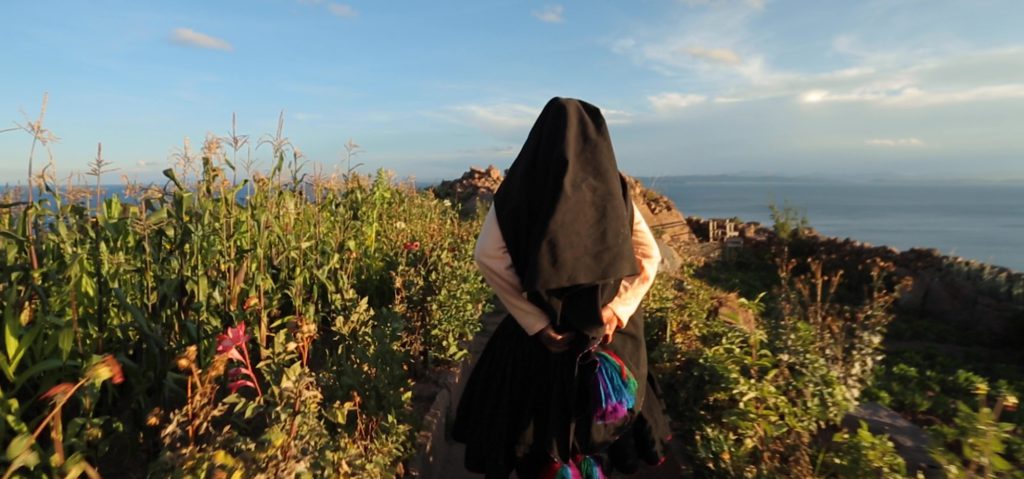
The entire government is made up of a few small dusty rooms in the main plaza. Taquile Island charges $2.50 to each tourist that enters. This pays for roads, solar panels, and schooling for their children. There is a men’s knitting club that sells handmade hats and scarves. As my new guide, Alipio, told me, “Sometimes we don’t sell any. Sometimes we get lucky and sell two in one week.” They split the small profits between over 40 men. When the fish aren’t biting, they make meals from their crops. When the crops aren’t producing, they will eat more fish, or borrow food from their neighbors.
My first morning filming on Taquile Island
I woke up with Alipio at sunrise. We walked down to the coast and got into his small row boat. He was going to take me fishing. I didn’t know what I was going to film or how long we would be gone. I set up my limited equipment and started filming.
The first few minutes of filming, I am always nervous. I feel pressure, people are looking to me for instruction. I never know where to start. The shots never seem to be how I imagined them. It feels awkward, it is awkward. But, after 15 minutes or so, something always seems to change. There’s too much to focus on, both technically and creatively, to have time for self-doubt. In that space, a switch is flipped. Reaction and spontaneity take over. It’s like working off of muscle memory; you aren’t thinking, you are acting, you are reacting, you are creating!
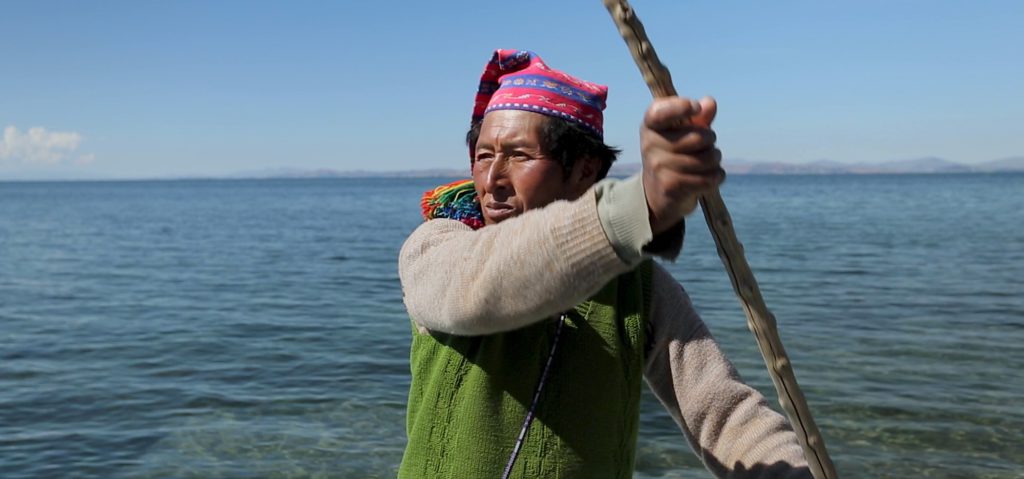
This is what happened to me on Alipio’s boat that day. The composition came to me out of thin air. The direction of the scene materialized as if it was scripted in a corporate board room thousands of miles away. And the story started to tell itself. There is absolutely nothing like it. I can still feel the exact moment when the rush hit me like a ton of bricks. I was deep in the process of creating something beautiful. It’s such an intense experience, I feel like anything is possible. It feels like a drug, and I’m happily addicted.
Sharing these stories is a privilege
Throughout the filmmaking process, I connect with my subjects in a very personal way. I am there in earnest, but I try to ask curious, difficult questions about their life and their values. They have so much to teach, and I have so much to learn. With each and every film, I get to educate myself, and I get to question my own perceptions.
After it’s all over with, I have the honor and privilege of telling their story. Alipio will never post a video log about his life. His wife Francisca will never write an article about her island. Most people will not visit this island. For the foreseeable future (maybe forever?), I get to be the sole arbiter of their legacy. These people have entrusted me to tell their story. What a terrifying and inspiring position to be in! What a responsibility! It is that human connection and that personal responsibility for telling these stories and celebrating these people that I live for.
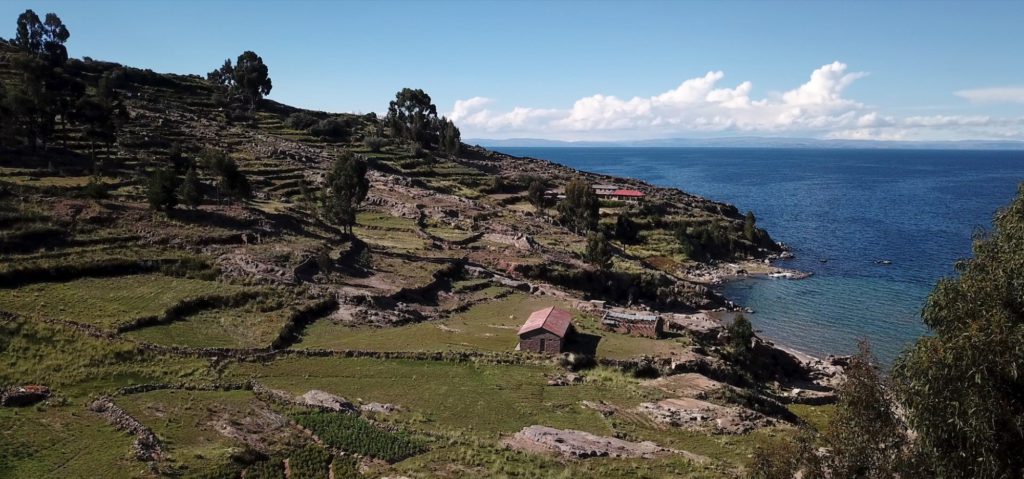
I fell in love with this island. On one hand they are innocently unaware of the outside world, on the other hand slowly creeping toward modernization and all the benefits and pitfalls that come along with it. The result is a short documentary unlike most of my previous work. It is rough, immediate, and personal. I typically make a point of never inserting myself in my films, but this film was to be different. You can hear me ask questions, poking and prodding to learn what I could about the island and the people. Nothing was pre-planned, events occurred as I was witnessing and experiencing them in the moment.
I tried to capture my connection to the humor and simplicity, but also the depth of this tiny culture. I felt myself questioning my own lifestyle, confronted with this incredibly simple and seemingly happy existence. I think we could learn a lot from a perspective like this, and I’m not totally convinced that modern society is better off. It’s something I still think about to this day.
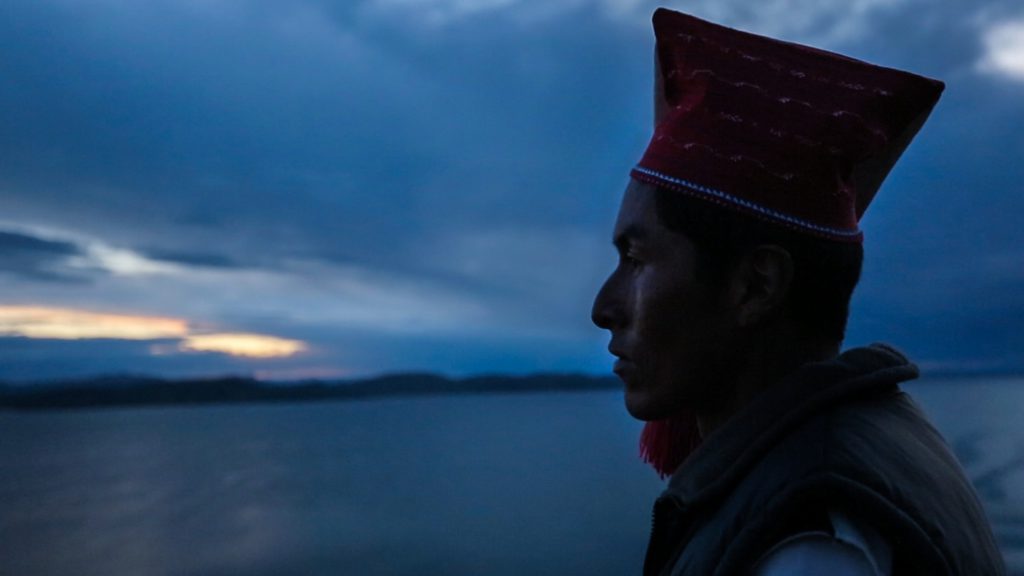
I didn’t bother trying to send Taquile Island to film festivals. Not this film, this film is different. This film is for me. It is a rejection of my ambition for “success” as a filmmaker and a representation of my filmmaking passion bursting back to life. It was a thrill to shoot, it was an honor to edit. It will be with me, like all my films, for the rest of my life. My plan was never to turn this into a 15 minute short documentary, I was just doing it because it brought me happiness. But now that I think about it, that’s how this whole career started in the first place.
Epilogue
After his trip to Taquile Island, Eric went back to work with new enthusiasm and finished Opening the Earth: The Potato King. The film premiered at the Santa Barbara International Film Festival, and is now on the festival circuit. Eric continues to work on documentaries, and has no plans to stop.
“Looking back on it, I think I learned patience in the process. With The Potato King, I had never been part of a project so big, and the time required to complete it really caught me off guard. For a brief moment, I lost focus on the long term goal and the rewards I get from filmmaking. I’m thankful that it happened. I will always have my experience on Taquile Island as a reminder of my passion for the process of filmmaking”.
